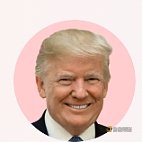Author: Bulu
As the US presidential election day approaches, the cryptocurrency industry is also on edge - the "cryptocurrency" is a globally debated issue, it is both a clear policy difference between US presidential candidates Trump and the outgoing Biden administration, and a persistent controversial issue in the current US presidential election campaign.
Two Perspectives
Of the two final candidates in the US presidential election, Trump has a very clear view on the cryptocurrency industry and participated in the Bitcoin conference held in Nashville in July 2024, openly expressing his "support". In contrast, the other presidential candidate Harris has a relatively mild stance on the digital asset industry compared to the current Biden administration's position, but her stance remains somewhat ambiguous.

In the campaign process, Trump's policy proposals on digital assets that have had a significant impact on public opinion include:
Establishing a National BTC Reserve: Trump stated that his administration will "retain all BTC currently held or future acquired by the US government" and will become the "core of the national strategic BTC reserve". It is reported that as of October 2023, the US government holds over $5 billion worth of BTC, mostly from asset forfeitures in criminal cases.
Establishing a Digital Asset Advisory Council: Trump proposed to establish an organization called the "Bitcoin and Cryptocurrency Presidential Advisory Council", whose rules will be written by those who love the industry, not those who hate it.
Preventing the Fed from Creating a Central Bank Digital Currency: The development of central bank digital currencies by central banks has become a trend, but the Fed has not yet decided whether to create a fully digitized dollar. Trump publicly opposed this idea multiple times in 2024. In May 2024, the US House of Representatives passed a bill prohibiting the Fed from creating a digital dollar, but whether the bill will ultimately be legislated still requires a long process of deliberation.
Creating the Crypto Platform World Liberty Financial: Aimed at promoting the widespread application of Stablecoins and decentralized finance. According to public reports, the early whitepaper of this project mentions the launch of a new digital asset called $WLFI, with plans to sell it to the public.
Although three years ago, Trump still had a skeptical attitude towards cryptocurrencies and had publicly criticized cryptocurrencies for facilitating illegal activities on social media, since August 2024, he has repositioned himself as a staunch supporter of cryptocurrencies as a presidential candidate.

Harris previously served as Vice President in the current Biden administration. The current US government has taken a strong regulatory approach towards the cryptocurrency industry.
So far, Harris has not issued many statements on the cryptocurrency industry. On September 22, 2024, at a fundraising event in New York City, Harris first mentioned plans to "encourage innovation in technologies such as artificial intelligence and digital assets".
Meanwhile, media reports indicate that Harris stated at an event in Manhattan that she may take a more open stance towards the cryptocurrency industry than the current administration. However, Harris has not yet proposed any specific policy plans.
Additionally, considering the need to compete for potential voters, the Democratic Party leadership behind Harris is working to improve relations with the cryptocurrency industry. An advocacy organization called Crypto4Harris held a virtual town hall meeting, bringing together multiple Democratic members.
Crypto Market's Actions
According to media reports citing data, cryptocurrency companies such as Coinbase and Ripple have become the dominant corporate donors in the 2024 US presidential election, accounting for 48% of all corporate political donations, nearly half.
According to data from the non-profit organization OpenSecrets, which tracks campaign spending, as of August 2024, the cryptocurrency industry has spent $119 million on political donations, exceeding the political donation funds from all other industries.
In this US presidential election, the cryptocurrency industry has already sensed the opportunity and hopes to elect government officials who are supportive of the cryptocurrency industry through the election.
It is reported that since 2010, cryptocurrency companies have been actively participating in political elections, with their level of involvement, breadth, and donation size second only to fossil fuel companies, making them the second most active industry in US political elections.
The survey data published in the recent report Election 2024 The Role of Crypto by Grayscale, the issuer of the Ethereum spot ETF, reflects some market conditions of the US digital asset industry:
53% of the surveyed US voters have some understanding of cryptocurrencies. This percentage has increased compared to the 2023 survey.
Regulation can still play an important role in instilling investor confidence in cryptocurrencies - 80% of the surveyed US voters believe that regulatory authorities can play a role in managing emerging technologies, and 20% of the surveyed voters said they would be more likely to hold cryptocurrencies if there were clearer digital asset regulations or policies.
40% of the surveyed US voters said that compared to previous elections, they are more focused on the presidential candidates' positions on BTC or other cryptocurrencies in this election.
Two-thirds of the surveyed US voters said they will consider the presidential candidates' positions on digital assets before voting. Of these, 56% said they are more likely to vote for a presidential candidate who is learning about and understanding digital assets, rather than one who is indifferent.
Opposing Voices
The social event prediction betting site Polymarket shows that in early October 2024, the support rates for Donald Trump and Kamala Harris were tied at around 50%, but from late October 2024, Trump's support rate suddenly surged, reaching 65.5% by October 31, 2024, becoming the focus of election discussions.
Experts responsible for election research openly stated that this situation may be due to the enthusiasm of a minority of cryptocurrency industry speculators trying to boost Trump.
Although the influence of the cryptocurrency industry in the political game seems to be growing, the opposition voices against cryptocurrencies have never ceased in the US.
Gary Gensler, the chairman of the US Securities and Exchange Commission, stated in a media interview that the cryptocurrency industry is "full of fraudsters and speculators". He pointed out: "Cryptocurrencies are only a small part of the US and global capital markets, but they could undermine the trust of ordinary investors in the capital markets... Global investors have lost too much money due to cryptocurrency companies not complying with regulatory requirements."
Crypto-Friendliness Now Does Not Mean Crypto-Friendliness in 5 Years
Driven by hundreds of millions of dollars in election funds, cryptocurrencies have become an important factor in the 2024 US presidential election, influencing not only the presidential candidates but also a large number of voters.
Trump is attracting cryptocurrency supporters through his public positive commitments, while Harris and the Democratic Party are also working hard to keep up, unwilling to give up the substantial election cash flow that can be obtained by supporting the industry. The supporters of the cryptocurrency field, in turn, are trying to exchange support for the election for more favorable regulatory policies for the future development of the industry.

Amidst the clamor, the blog post written by Ethereum founder Vitalik Buterin is always worth revisiting, in which he expressed the following views on the relationship between cryptocurrencies and politics:
If you see a politician being friendly to cryptocurrencies, one thing you can do is check their views on cryptocurrencies themselves 5 years ago.
At the same time, you can also look up their views on topics related to the crypto industry from 5 years ago. Specifically, try to find topics where "supporting freedom" and "supporting the company" are inconsistent.
If a politician supports crypto assets, the key question to ask is: are their reasons for doing so correct? Do they have a vision for the technological, political and economic development of the 21st century that is consistent with yours? Do they have a more long-term positive vision beyond just "defeating other bad tribes"?
If so, that's great: you should support them and make it clear that this is the reason you support them. If not, then either stay completely out of it or seek out better forces to ally with.
At the same time, Vitalik Buterin explicitly opposes the trend of choosing political allegiance based on who "supports crypto", and believes this decision-making approach carries high risks and may go against the original intentions and values that led you to enter the crypto asset space.
As the November 5, 2024 US presidential election approaches, the battle between the two party presidential candidates is becoming increasingly fierce. For the future of digital crypto assets, as Vitalik Buterin has always expressed: the future of digital assets should be a future related to "decentralization", "crypto" is not just about digital assets and blockchain - what we need is not just to support "crypto", but to support those deeper goals.







